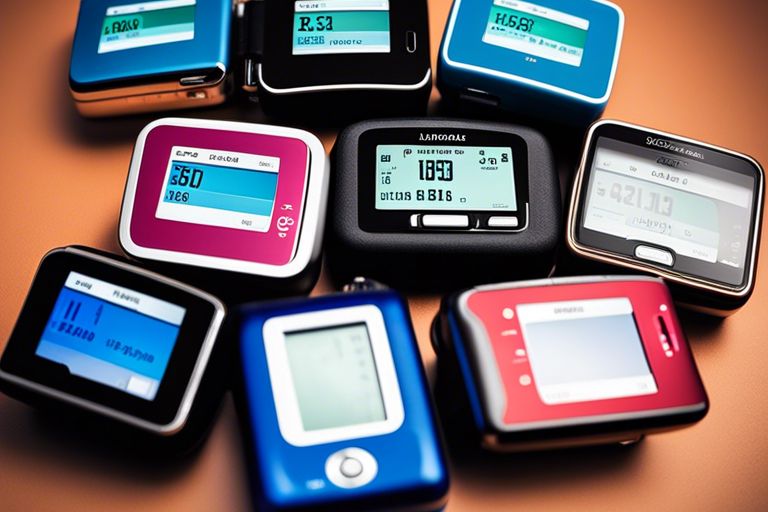Supporting a loved one with Type 1 Diabetes can be challenging, but with the right knowledge and understanding, you can make a significant difference in their well-being. By providing the right support, you can help them manage their condition effectively, navigate the daily challenges that come with diabetes, and ensure they feel loved and cared for every step of the way. In this guide, we will explore practical tips and strategies to assist you in supporting your loved one with Type 1 Diabetes, helping to strengthen your relationship and their overall health and quality of life.
Key Takeaways:
- Educate Yourself: Learn about Type 1 diabetes, its symptoms, treatment, and how to manage it effectively.
- Be Supportive: Offer emotional support, encouragement, and understanding to your loved one with Type 1 diabetes.
- Help with Management: Assist with monitoring blood sugar levels, medication reminders, and lifestyle adjustments.
- Encourage Healthy Habits: Promote a balanced diet, regular exercise, and stress management techniques to help your loved one with Type 1 diabetes.
- Communicate Openly: Keep the lines of communication open, listen to their concerns, and work together to address any challenges that may arise.
How to Offer Emotional Support
Active Listening and Empathetic Communication
One of the most important ways to offer emotional support to a loved one with Type 1 Diabetes is through active listening and empathetic communication. This involves truly paying attention to their feelings, thoughts, and experiences without judgement. Show genuine interest in what they have to say and validate their emotions by acknowledging and understanding their perspective.
Providing Encouragement and Motivation
Supporting a loved one with Type 1 Diabetes also includes providing them with the much-needed encouragement and motivation to navigate the challenges they face. Offer words of support and praise their efforts in managing their condition. Help them stay motivated by reminding them of their strength and resilience in dealing with diabetes on a daily basis.
It’s important to strike a balance between offering encouragement and not coming across as patronising. Be authentic in your praise and focus on highlighting their progress rather than their setbacks. Your words of motivation can go a long way in helping your loved one feel supported and empowered in managing their diabetes.
Practical Tips for Daily Diabetes Management
Assisting with Blood Sugar Monitoring
Monitoring blood sugar levels is crucial for managing type 1 diabetes. As a supportive loved one, you can assist by helping your loved one keep track of their blood sugar readings. Provide encouragement and reminders for regular testing throughout the day. Help them log their results in a journal or an app to monitor trends and make necessary adjustments to their treatment plan.
Helping with Insulin Management and Diet Planning
Supporting a loved one with type 1 diabetes involves collaborating on insulin management and dietary choices. Familiarise yourself with the types of insulin they use and their dosages. Offer to prepare balanced meals together and help them make healthy food choices that align with their insulin regimen. Any adjustments to insulin doses or meal plans should always be discussed with their healthcare team.
Recognizing and Responding to Diabetes-Related Challenges
Identifying Signs of Blood Sugar Irregularities
It is crucial to be aware of the signs indicating blood sugar irregularities in someone with Type 1 Diabetes. Symptoms such as extreme thirst, frequent urination, fatigue, blurred vision, and sudden weight loss could signal low or high blood sugar levels. Recognising these signs promptly can help prevent serious complications and allow for timely intervention.
Coping with Emotional and Physical Effects
Coping with the emotional and physical effects of Type 1 Diabetes can be overwhelming for both the individual and their loved ones. It is important to offer support and understanding during difficult times. Encouraging open communication, providing reassurance, and seeking professional help when needed are all necessary in managing the challenges that come with the condition.
Educational Support and Advocacy
Staying Informed About Type 1 Diabetes
As a caregiver to someone with Type 1 Diabetes, it is crucial to stay informed about the condition. This includes understanding the basics of diabetes management, recognising symptoms of high and low blood sugar levels, and being aware of the latest treatment options. Regularly consulting with healthcare professionals and attending educational events can help you stay up-to-date with the latest information.
Advocating for Your Loved One’s Needs
Advocating for your loved one’s needs is an crucial aspect of supporting someone with Type 1 Diabetes. This involves communicating effectively with healthcare providers, school personnel, employers, and other relevant parties to ensure that your loved one’s diabetes management needs are met. By being a strong advocate, you can help protect your loved one’s rights and improve their quality of life.
Advocacy may include discussing accommodations at school or work, ensuring access to necessary medications and supplies, and raising awareness about diabetes-related issues. By actively advocating for your loved one, you can make a significant impact on their overall well-being and ability to manage their condition effectively.
How to Support a Loved One with Type 1 Diabetes
Supporting a loved one with type 1 diabetes is crucial in helping them manage their condition effectively. By educating yourself about diabetes, being understanding of their struggles, and encouraging healthy habits, you can make a significant difference in their well-being. Learning to recognise the signs of high or low blood sugar levels and being prepared for emergencies can also be lifesaving. Communicate openly with your loved one about their needs and always be there to offer your support and encouragement. With your understanding and care, you can help your loved one with type 1 diabetes lead a healthier and more fulfilling life.
FAQ
Q: What is Type 1 Diabetes?
A: Type 1 Diabetes is a chronic condition where the pancreas produces little or no insulin, a hormone required to regulate blood sugar levels.
Q: How can I support a loved one with Type 1 Diabetes?
A: You can support a loved one with Type 1 Diabetes by educating yourself about the condition, offering emotional support, and helping them manage their blood sugar levels.
Q: What should I know about monitoring blood sugar levels?
A: It’s necessary to understand how to use a blood glucose monitor, interpret the results, and recognise the signs of high or low blood sugar levels.
Q: How can diet and exercise help in managing Type 1 Diabetes?
A: A balanced diet and regular exercise are crucial for managing Type 1 Diabetes as they can help regulate blood sugar levels and improve overall health.
Q: What are the potential complications of Type 1 Diabetes?
A: Complications of Type 1 Diabetes can include nerve damage, kidney problems, eye damage, and an increased risk of heart disease, highlighting the importance of proper management.




